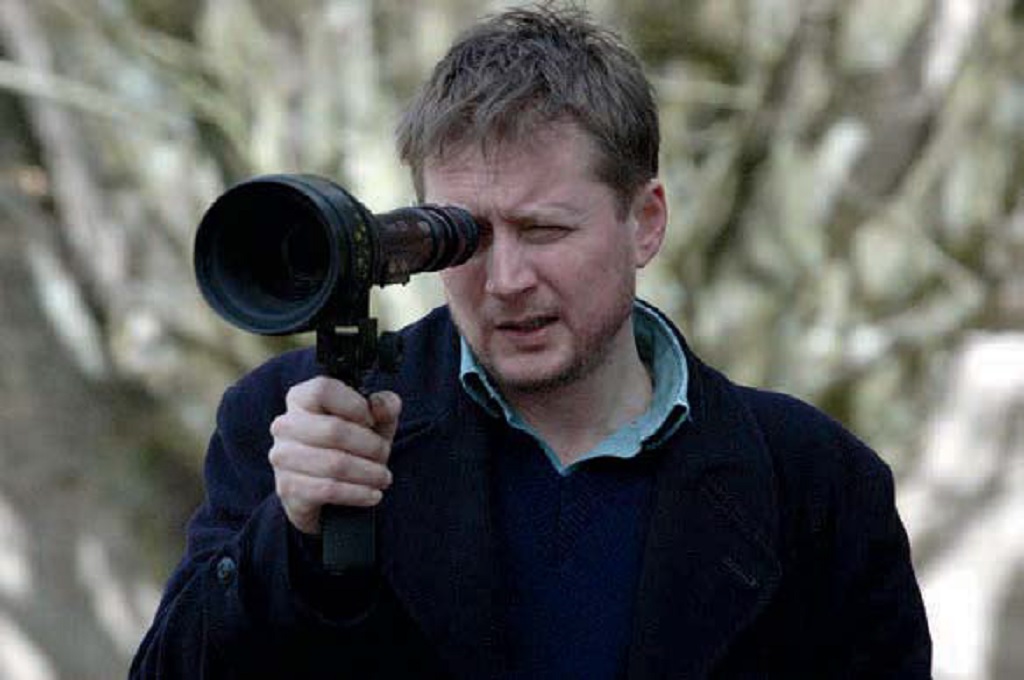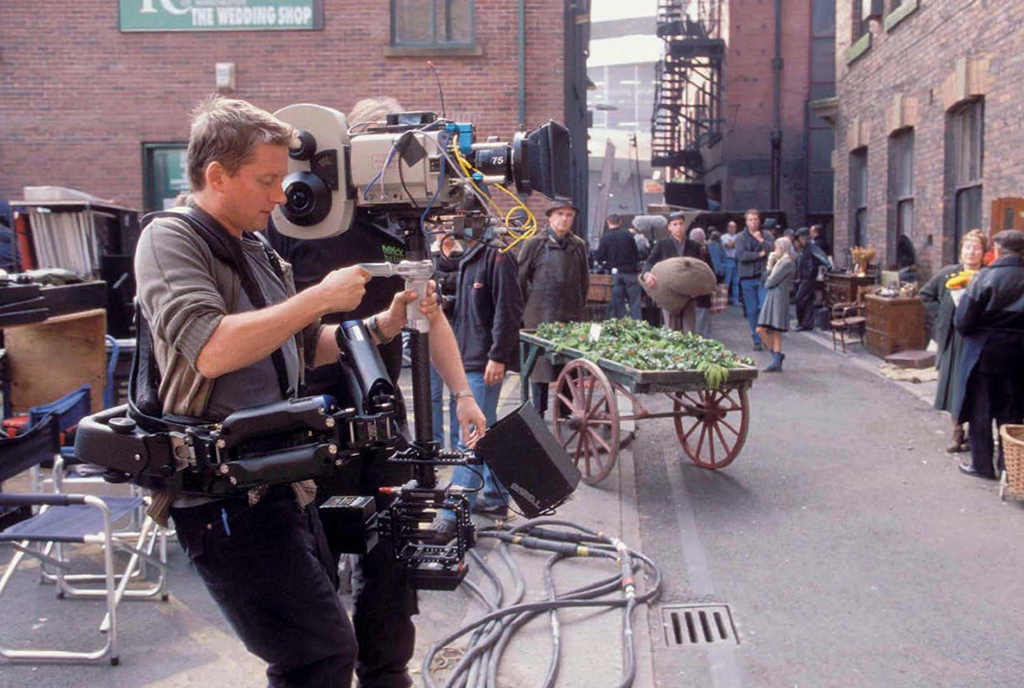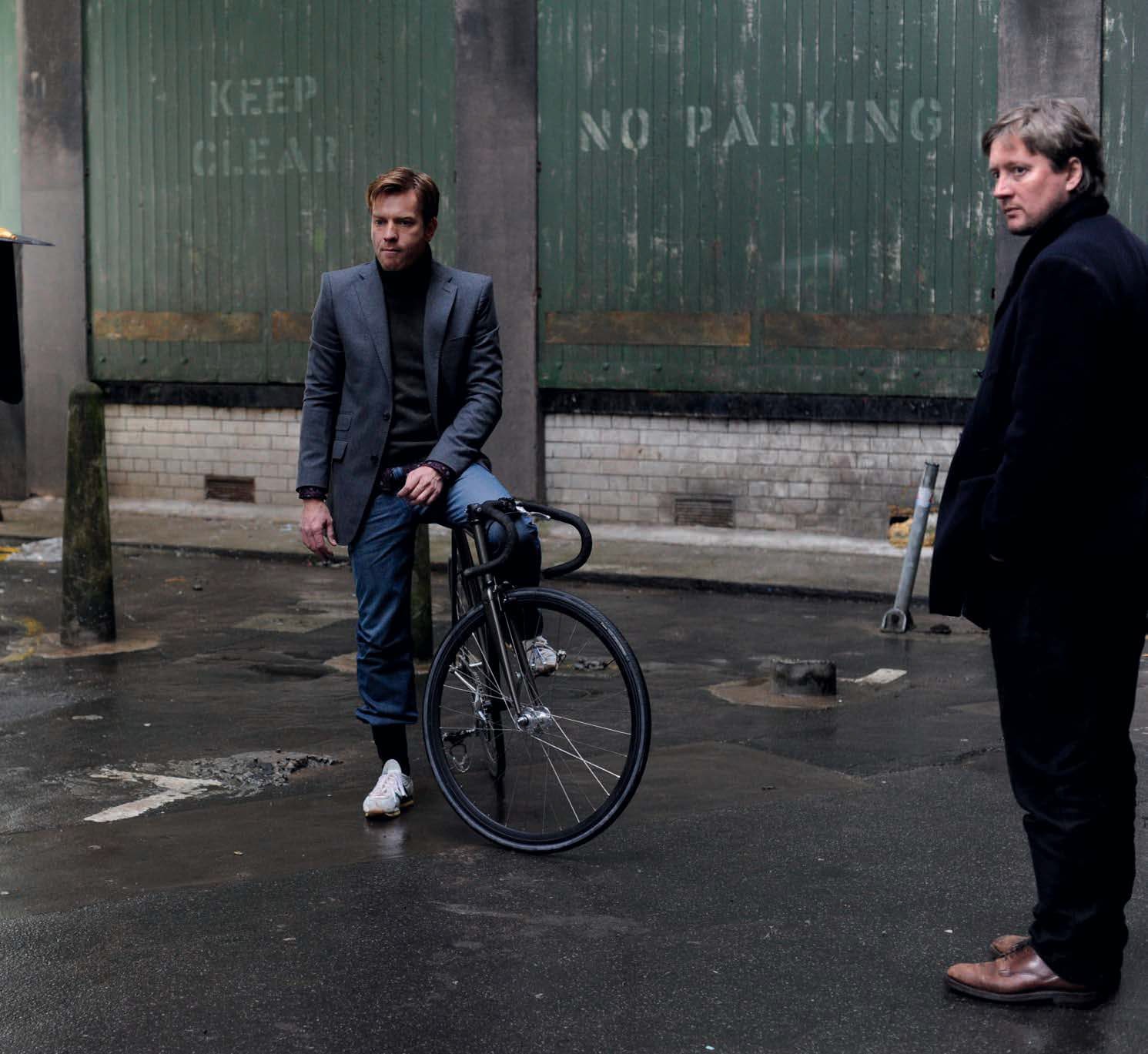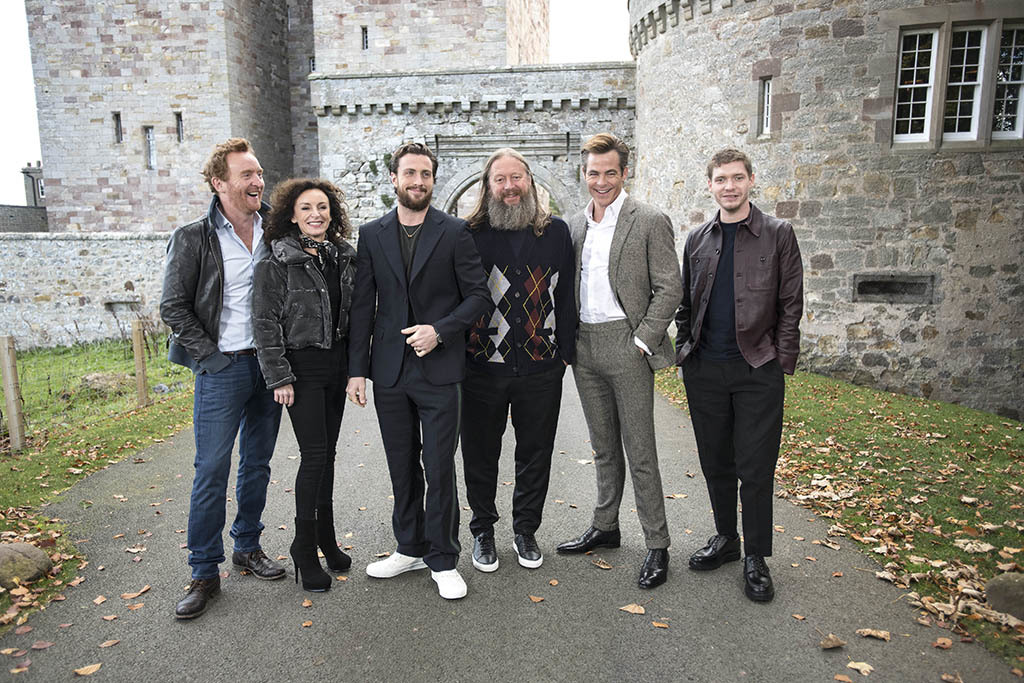
From Pitlochry to the big screen with director David Mackenzie
Engineering and the military’s loss is movie-making’s gain as Scottish film director David Mackenzie blazes a trail.
At age 19, David got the chance to build a trunk road. ‘I was offered a job as a trainee concrete engineer because I had a physics higher,’ he recalls.
‘It was when they were taking the A9 past my parents’ house. I didn’t take that job because I wanted to go travelling.’ He regrets not becoming a civil engineer more than his failure to join the Black Watch when his faulty hearing ruled out a military career.
‘I can imagine a life of building large scale concrete structures around the world,’ he says dreamily. ‘Dams and massive infrastructure and that scale of engineering.’
Somehow the road to Pitlochry got built without him and Mackenzie found himself engineering massive, complicated projects of a completely different nature: Films.

Making Starred Up was a gruelling process for David Mackenzie
He has directed 11 so far; the most recent, Outlaw King, was released on Netflix last year.
Starred Up, was one of the most talked-about films of 2014 and won three Scottish Baftas (including Best Feature Film and Best Director for Mackenzie himself).
This was not a date movie. Mackenzie, who is softly spoken and thoughtful (although no pushover) has created a prison drama that makes The Shawshank Redemption look like The Best Exotic Marigold Hotel. Shot in a crumbling Victorian jail on Belfast’s Crumlin Road, with former inmates and staff as extras, it captures the simmering tension of incarceration.
Terrifyingly, it’s based on the real-life story of Jonathan Asser, a voluntary prison therapist caught between an 18-year-old hard man and his dessicated con of a father. Starred Up (it’s prison slang for an inmate who transfers from a young offenders’ institution to a grown-up jail) is reckoned to be Mackenzie’s best work to date.
Unlike most feature films, it was shot in chronological order. This meant that, instead of worrying about where each scene fits in to the narrative, plus the thousand fiddly details of continuity required to make the editing process work, everyone could just get on with letting the story unfold. Doing all this in a real, dilapidated prison, where everyone retired to a cell between takes, brought an atmosphere that even the best set designer can’t replicate.
‘It’s not the real thing, we’re faking it, making a piece of fiction, but we can tune into the reality of it,’ the director explains. ‘We tried to give it as much authenticity as possible then allow the whole thing to breathe and play out on its own
terms. The setting is amazingly dramatic, you have an innate tension, a hostile environment that can turn at any moment. When you are making drama, that is very useful.’

David Mackenzie on the set of Hallam Foe
Anyone who saw Mackenzie’s earlier, quirkier Hallam Foe, shot on the rooftops of Edinburgh, or his American sex comedy Spread, starring Ashton Kutcher, might not recognise the rancid corridors of Starred Up. He is the first to admit that making this film has changed him.
‘I’ve always been more interested in emotional and poetic truth than factual truth. Somehow, doing a far more realist film than I’ve done before, I’ve become a born again realist. Everything I’m planning to do next is about getting down to the heart of the situation. There’s the construction of realism and the nature of the reality – it’s about steering a path between that.’
Starred Up was produced by Sigma Films, the company set up by Mackenzie, his actor brother Alastair and his then girlfriend Gillian Berrie. Since its early days making shorts Sigma has grown arms and legs. Berrie is the force behind Film City, the former Govan town hall which is now home to most of Scotland’s movie industry. Alastair, who is still best known as Archie from the Monarch of the Glen, has been in several of his brother’s movies.
Was there tension over the Christmas turkey when Mackenzie cast Ewan McGregor as the lead in Young Adam, or Perfect Sense, instead of his little brother? Mackenzie is not saying. He would love to make another film with Al (which is what everyone calls him) in the lead. But Al is very busy. Currently shooting something Tudor. ‘All I know is that he’s got a very big codpiece.’
As boys, growing up the sons of a Rear Admiral in rural Perthshire, attending Rannoch School, Al was very much the performer while Mackenzie was the observer. There is a sensible sister in the middle who lives in Edinburgh, has a proper job and takes nothing to do with the film industry.

David Mackenzie keeps his counsel on whether casting Ewan McGregor ahead of his brother Al disrupted family karma
As the eldest, David had it all to do when he left school, torn between conforming to the family’s military tradition and taking photographs at art college. His substandard hearing gave him an honourable discharge, one that his family could accept, and left the way open for him to pick up a camera. His parents have never, he says, stood in his or his brother’s way.
‘There was definitely approval and a turning point when we started to do alright but there wasn’t a strong stamp of disapproval when we weren’t. Our sister is a little bit more fiscally appropriate than the rest of us.’
Mackenzie’s parents have seen around half of his films. Spread would not have been ‘appropriate’. Starred Up is, he says, ‘too intense’. (That is code for containing nudity, excrement, genital biting and language that might make even an old navy man blush.) It also has parent issues: it is about a man who, having abandoned his son, now wants to make a claim on him. Another Christmas dinner potentially ruined.
How does it feel to direct Ewan McGregor and Emily Mortimer in a sex scene involving custard, knowing that at some point, your parents are going to watch it? He smiles. ‘It’s a small hill to climb over. Young Adam was quite embarrassing to show to parents but they were also aware it was being received well.’

The cast , director and producer of the new Netflix film Outlaw King outside Borthwick Castle near Edinburgh (Photo: Wattie Cheung/Netflix)
The smile becomes more rueful. ‘I’m not the kind of film-maker my parents fully get. Unfortunately I’m not making films either children or parents can really go and see.’
Mackenzie’s two children are at primary school in Glasgow’s west end. The family decamped to LA to make Spread and, for a while, he thought that was it. ‘I came back to Glasgow in October 2008, thinking I’d better stay in LA, it’s where the work is. Within two days my desire to go back had evaporated.’
There were, he says, ‘lots of very seductive things for me about being in LA and being involved in big grown-up films.’ Not least of all the climate. ‘Making a movie in Scotland you have all of the craziness the weather has to throw at you. There is a scene in Young Adam done in light rain. It was about putting sun tan oil on. You do have to fudge it all the time. I can understand why studios went to that piece of desert on the west coast of US and made it into the centre of making movies.’
It turns out, however, that sunshine is not enough. Thanks largely to the efforts of Gillian Berrie, it is now possible to make movies in Glasgow. Mackenzie’s next meeting, with the director of photography from Starred Up, is taking place in his front room. He hopes to shoot a film for Warner Bros in Colombia. He is up for making films in France, in LA, wherever.
‘I have to be international and go where the projects take me, but it’s a lot easier to appreciate Scotland when you go away and come back.’
(This feature was originally published in 2015)
Click HERE to read more culture news and features from Scottish Field
TAGS

